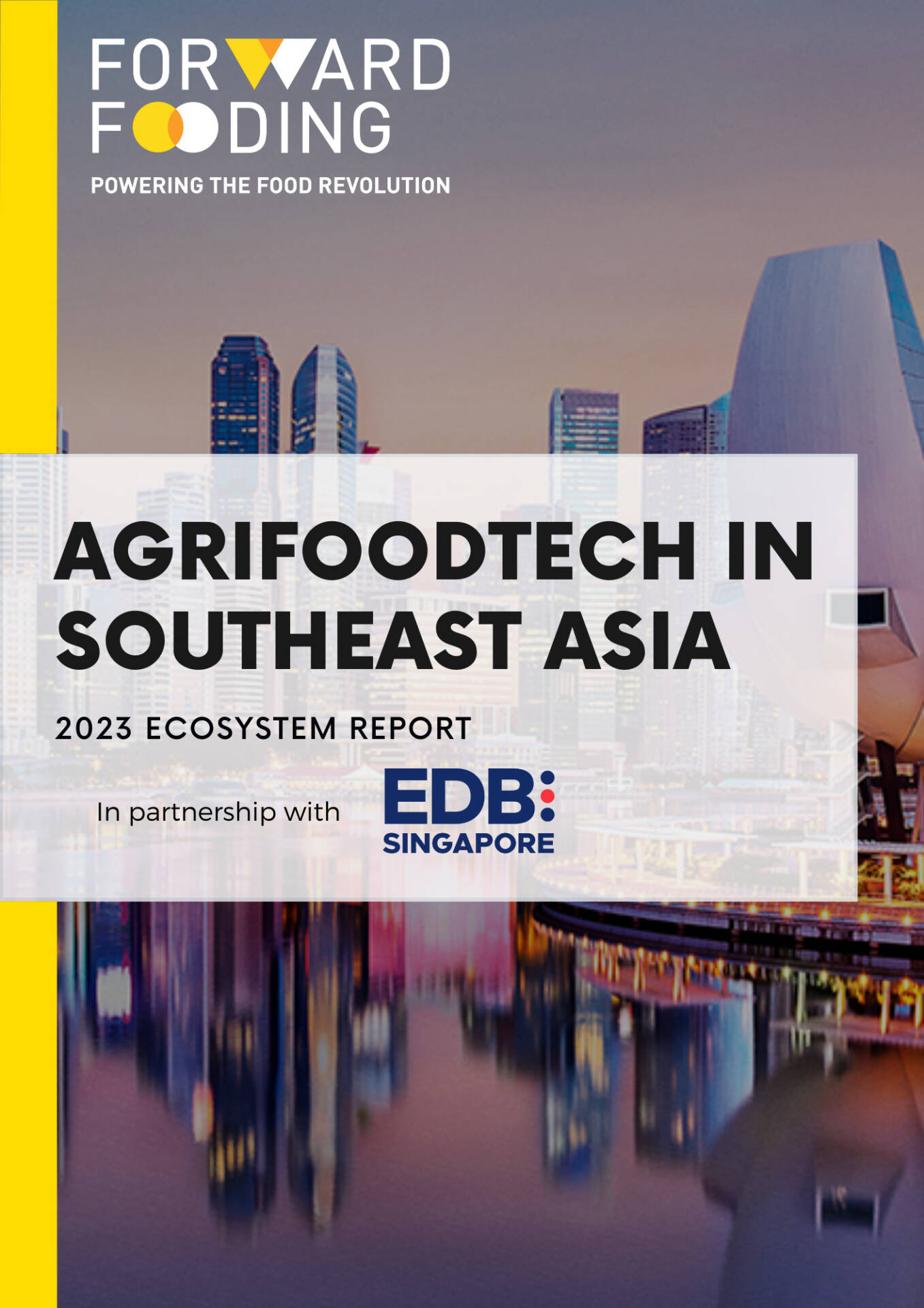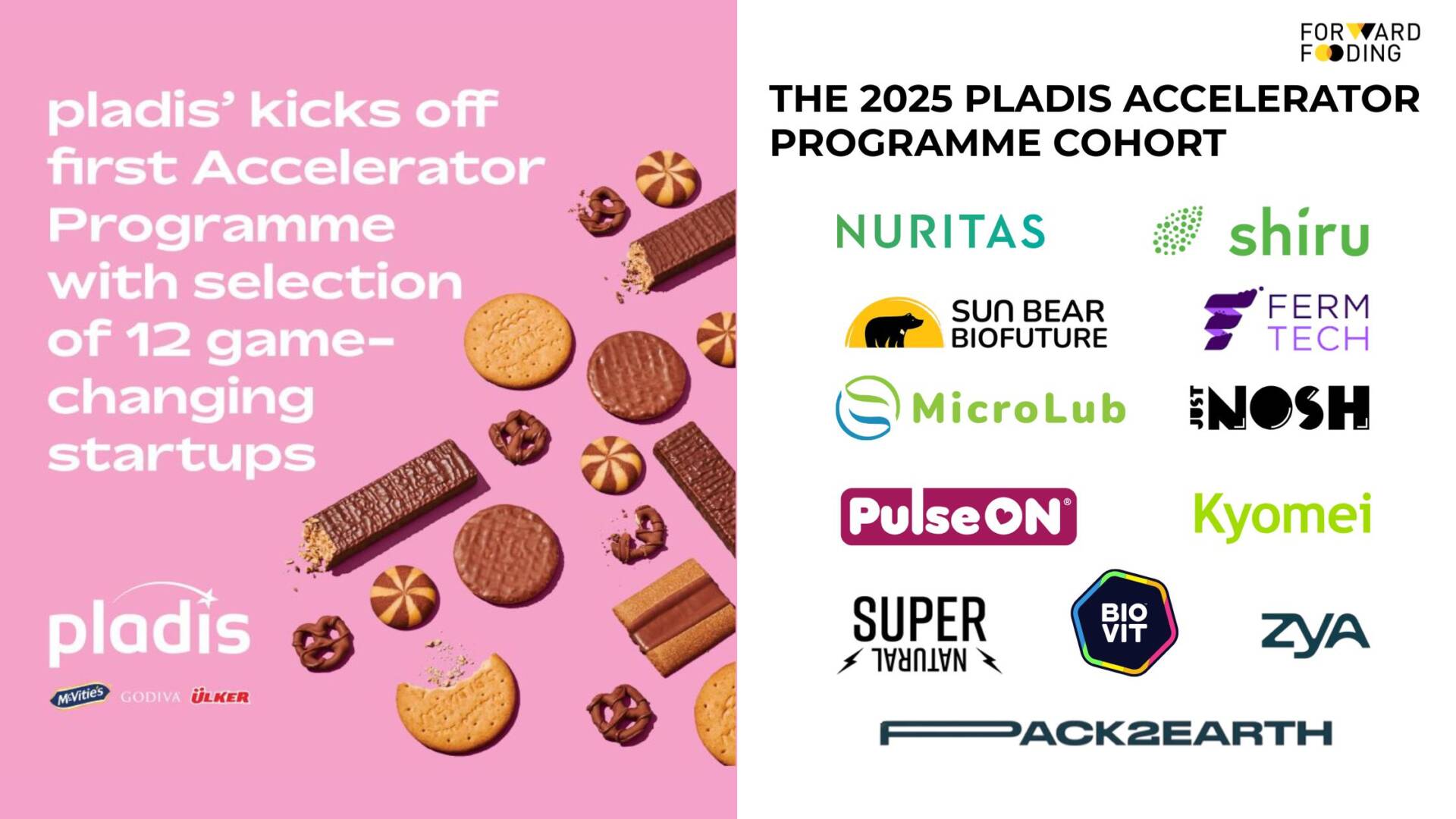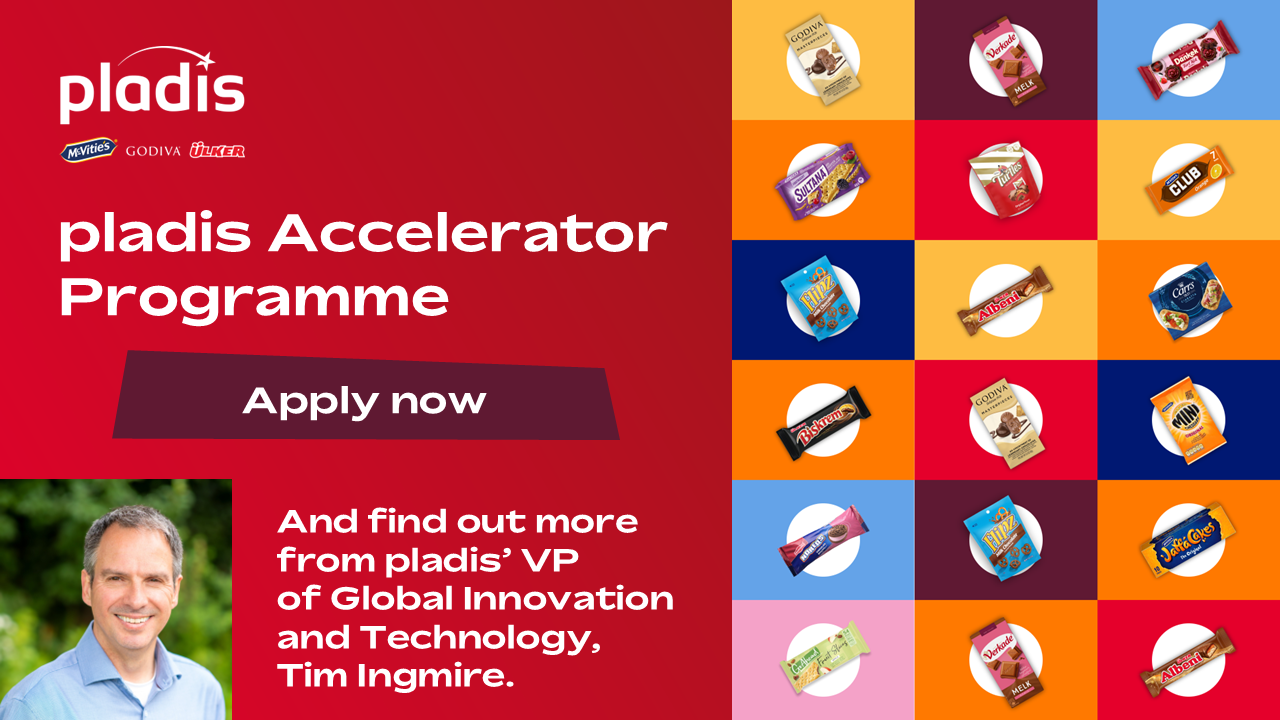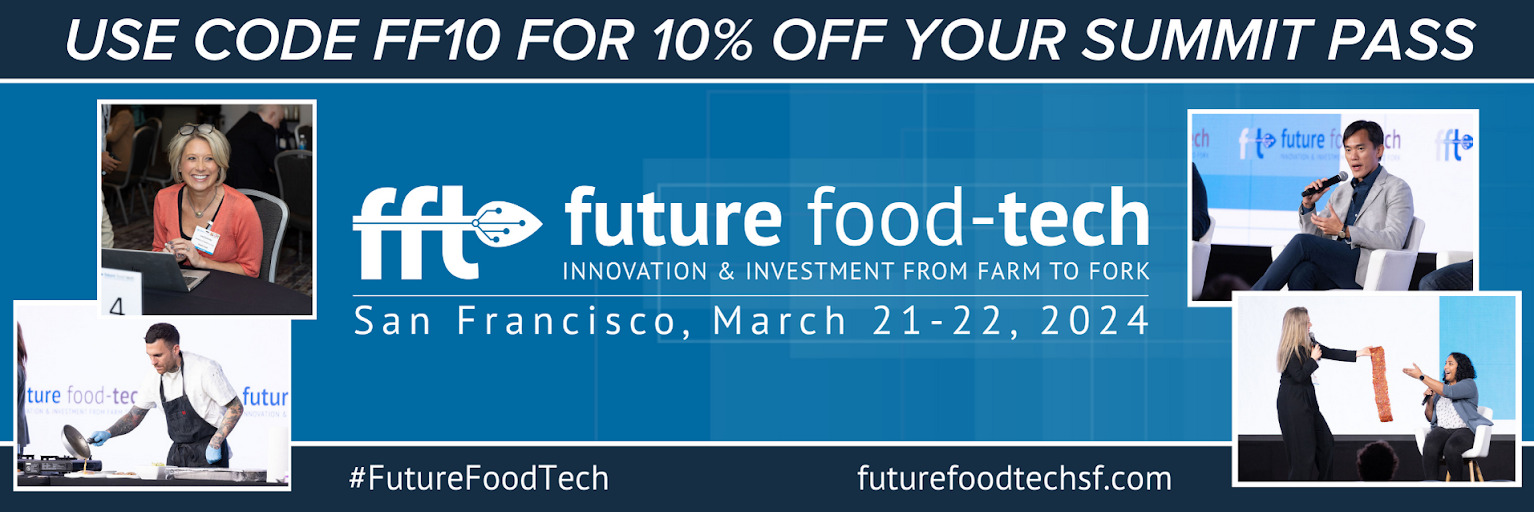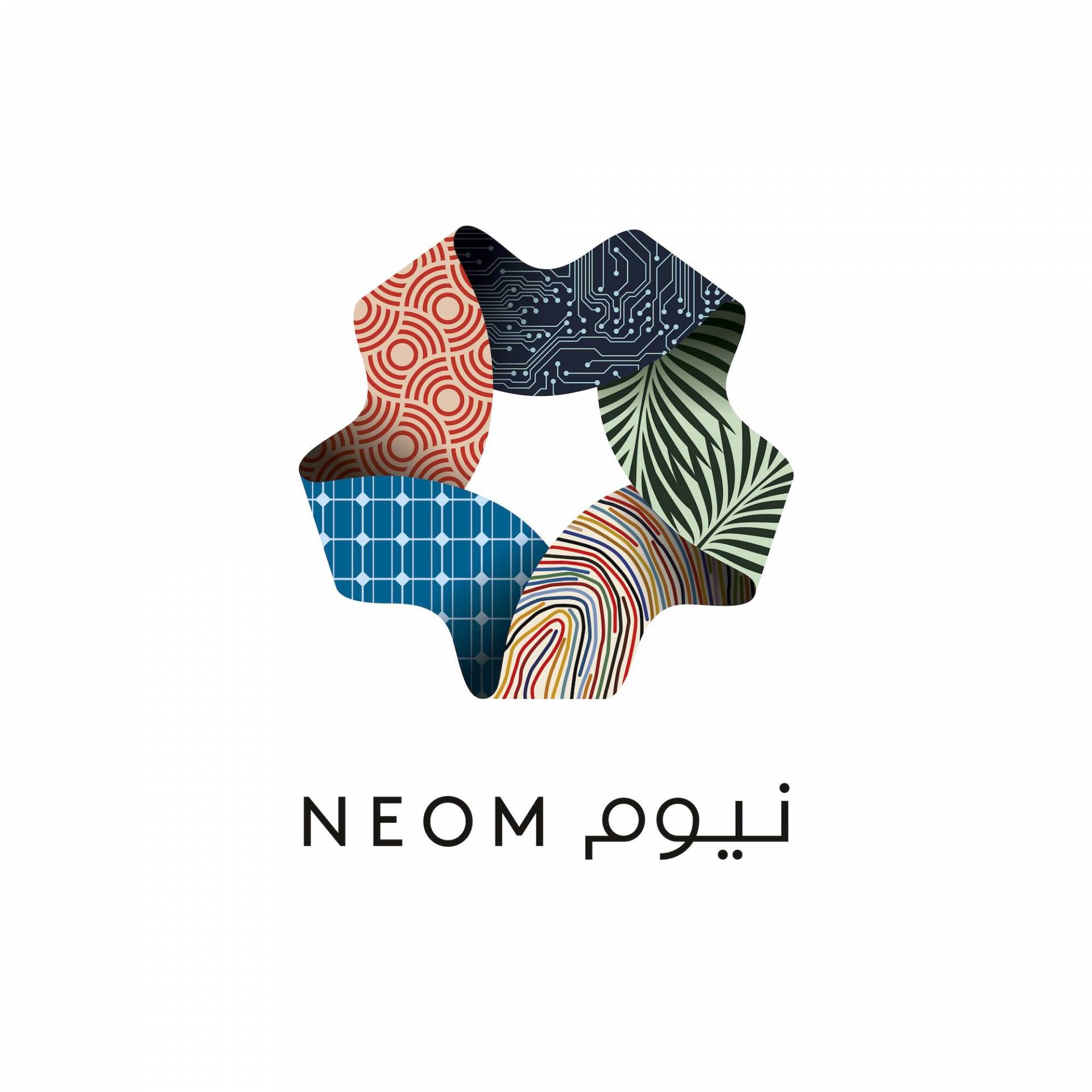FORWARD FOODING
THE BLOG
How the Clean Food Group is Transforming the Food Industry with Clean Oil
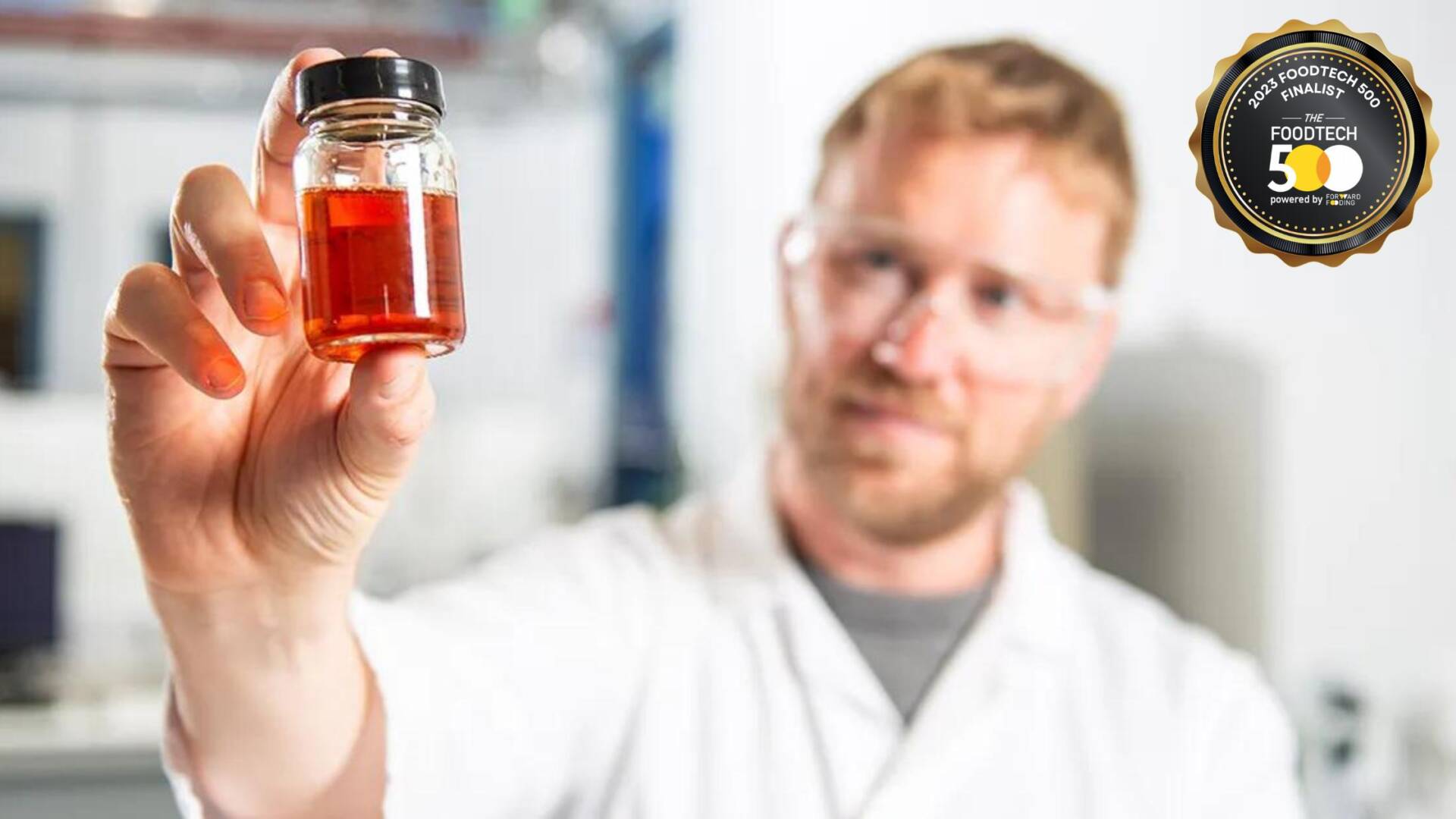
With the world increasingly focused on sustainability and innovation, the Clean Food Group has carved a niche in the underexplored market of fats and oils.
While many have turned their attention to alternative proteins, Alex Neves, Tom Ellen, and Ed McDermott founded the Clean Food Group, as they recognize the crucial role fats play in our diets and the food industry. Their CLEANOilCell™ technology not only promises to create diverse and sustainable fat and oil alternatives but also aims to tackle significant challenges like food waste and food security.
In an interview with Co-founder and CEO Alex Neves, we delve into the origins of FoodTech 500 alum Clean Food Group, the technology they employ, and their ambitious plans for the future, highlighting how they are poised to make a substantial impact on the global food landscape with their clean oil.
This interview has been edited for clarity and concision.
Forward Fooding: How did the Clean Food Group start?
Alex Neves: Myself, our CFO Tom Ellen, and our Co-Chairman Ed McDermott founded the company at the beginning of 2022. We decided to focus on oils and fats as they are a relatively underserved area of innovation compared to components like protein. While researching the area, we quickly came across Professor Chris Chuck and his vast work developed over 10 years at the University of Bath. We then acquired his technology from the university, and Chris joined us as a Technical Co-founder.
FF: Why do you think oils and fats are an underserved market compared to alt proteins?
Alex: Fat is a crucial component in food. It makes up around 20% of our daily calories, which is more than our daily amount of protein. It plays a critical role in our diets as a nutritional component and also plays a key role in the food industry’s three key challenges: sustainability, health, and food security. But despite all of those, it’s been a relatively underserved area of innovation, particularly when you compare it to components like proteins, which have seen a lot of innovation over the last 10-15 years.
FF: Can you describe how your proprietary platform works?
Alex: Our proprietary technology platform, CLEANOilCell™, is like an oil seed for the future. It can be processed similarly to an oil seed from agriculture. But rather than being grown horizontally on the ground, CLEANOilCell™ can be grown vertically in a fermenter because it is a yeast cell. Like an oil seed, it’s made up of around 40% oil; the rest is protein, carbohydrates, fiber, etc. But the real difference is that we can direct our oil cell to produce various oils or fats depending on the application.
It’s also a scalable technology platform and non-GM. Chris developed the cell to produce 40% of this quantity of oil using a series of directed revolutionary steps versus GM.
Crucially, our oil cell can use various feedstocks, including food waste, which is critical in helping bring down the cost of the end product. Also, we can use retrofitted food-grade infrastructure rather than new pharma-grade infrastructure to produce at scale. Again, this is critical in reducing costs and the speed to get to market.
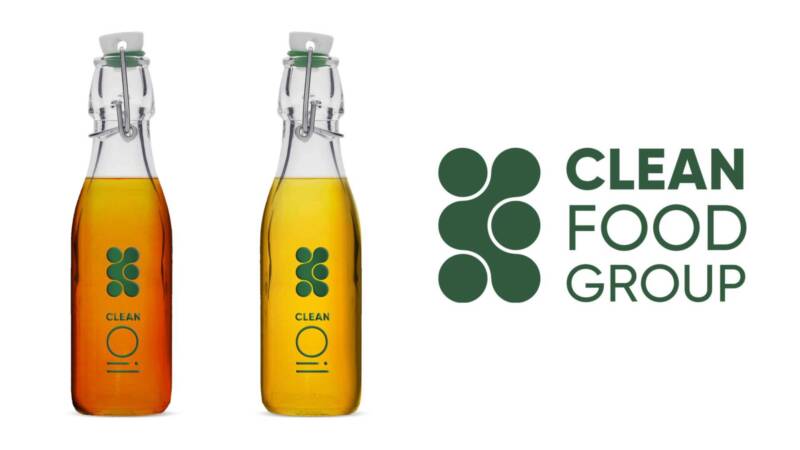
Courtesy of Clean Food Group
FF: Which food waste source are you using to deed your yeast? Is there a lot of processing needed to upcycle food waste as opposed to using available resources like starches, sugars, or others?
Alex: For 10 years, Chris trialed a number of different feedstocks. We’ve decided to choose one to scale with, and we chose bread waste because it’s the second largest source of food waste in the UK. We can also ensure that we can access food-grade waste in a consolidated form. For those reasons, we felt that bread waste was a good first waste to scale with.
We have a very simple pre-processing step that releases the sugars and allows us to introduce them to our yeast. We also have an industrial partnership with industrial bakery Roberts Bakery in the UK, whose bread waste we use in our process.
FF: Are you also trying to explore other feedstock?
Alex: We have a very active R&D program to identify other food waste streams we can use in our process. Some of this is grant-funded. We’re part of a grant looking at grass as a potential feedstock.
We also engage with our commercial partners on the product side to identify side streams and waste streams in their processes on the one side and oils and fats that make the most impact on their products on the other side. In doing that, we can offer value at both ends of the value chain. We can take a business’ waste stream in and then deliver to them a valuable oil fat on the other side in a circular system.
FF: So, if a company that produces waste can increase its value, will it become an extra income for the business?
Alex: Absolutely. In our existing collaboration with Roberts Bakery, we bring in a sidestream from their process, which is bread waste. Then, we produce oil and fat they can use in their bakery processes. So it’s in a circular production system.
FF: So, the bread waste for your feedstock comes from businesses not from consumers?
Alex: No, it’s not B2C. We initially decided to focus on B2B, both regarding the feedstock and our product. We’ve seen that it works well within our business model to work with other food or cosmetics businesses, identify their side streams, and then deliver back to them a B2B ingredient that they can use again within their processes.
FF: Do you have ongoing projects and collaborations outside of the UK?
Alex: We do not see ourselves as being limited by geography. We’re based in the UK, but we have an investor and collaborator from South America, the Alianza Team, who specialize in oils and fats. They invested in our seed round to bring our oils and fats to market.
Another core commercial partner is the Doehler Group, a German business of added-value ingredients. Doehler Ventures invested in our seed round, and we are collaborating with them to scale our fermentation. We’re currently at a 6,000-liter scale, and we’re going on a commercial scale with them this year.
FF: You mentioned that you also retrofit machines. Does your team do that by yourself or is that a separate business model that you can maybe expand later on once your collaborators or clients need it?
Alex: Until now, we’ve established our demonstration plant at Doehler Group’s facility in the UK called Bevisol. There, we’ve been able to use retrofitted food-grade infrastructure. Our vision is to establish a manufacturing facility in our own market and form collaborations with commercial partners to scale out our technology to other markets. That may include our knowledge of retrofit.
It’s an ongoing learning curve; we’re only at the demonstration scale. But the great news for us and our technologies is that we’ve demonstrated that we can retrofit food-grade infrastructure instead of having to build or buy new pharma-grade infrastructure to produce at scale. That’s crucial in scaling out because it means that we can bring down the cost of the facility and get to market quicker in other markets.
FF: What is your current production capacity, and what is your next aim?
Alex: We retrofitted a 6,000-liter fermenter at Bevisol in the UK last year. We’ve been fermenting and producing at that scale since. Later this summer, we’re looking to commercial scale with our partner at the Doehler Group.
We hope to be on the market within the cosmetics industry next year. Between now and then, we’re looking to get to commercial scale from a production perspective and have our oil approved for the cosmetics market.
FF: Which is a more promising market, the food industry or the cosmetics industry?
Alex: We’ve always considered the longer-term opportunity in the food industry. If you look at palm oil, about 80% of the palm oil industry goes into food.
That said, the cosmetics industry offers us a really interesting opportunity. Firstly, from a regulatory perspective, there are lower barriers to entry. So we’re able to complete the regulatory pathway in a shorter period of time. We’re already halfway through, and we expect to be in the cosmetics market next year.
The second is regarding cost elasticity. Traditionally, it’s easier for us to enter the market at lower scales, unlike in the food industry, where we intend to be at a true industrial scale before entry.
The food industry requires larger volumes. Until then, we have already been planning with our commercial partners, pilots, consumer trials, etc. But to really make an impact in the food industry, we need to be at a higher volume. We also need to reduce the cost of the oil to be competitive with oils and fats within the food industry.
FF: How do you aim to compete with the production of oils coming from palm and soy?
Alex: We don’t aim to compete with palm and soy at the commodity level. Our platform enables us to leapfrog some of the early stages of the traditional value chain to arrive directly at a higher-value oil and fat functionality. In the traditional industry, that would require multiple levels of processing, fractionating, blending, etc.
We’ve done a number of technical economics, and we demonstrated that through a combination of targeting high-value ingredients, relatively cheap feedstocks, and using retrofitted food-grade infrastructure, we’re able to be very competitive versus the traditional industry at commercial scale.
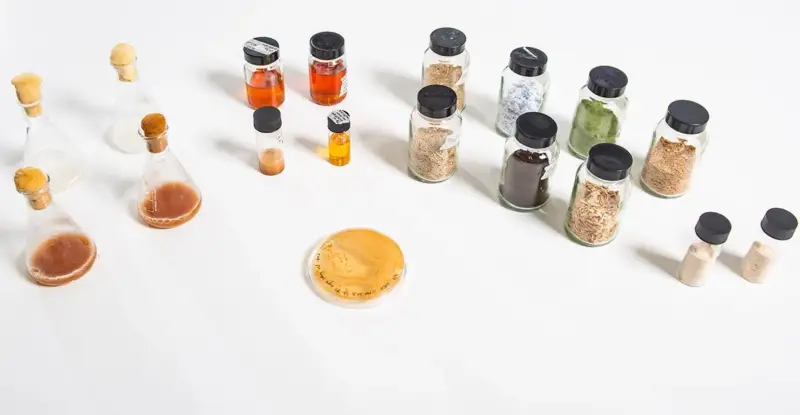
Courtesy of Clean Food Group
FF: Recently, you raised £2.5M in funding. Can you tell us more about how your business has been funded up until now and where you will use this investment?
Alex: We’ve raised around £7M in private funding and under £6M in grant funding, mainly through UK government grants.
Regarding where we’re directing our recent £2.5M funding, the key objectives are to hit milestones around three pillars before our next funding round next year. The first is around scalability. We’ve demonstrated that technically and economically, getting our technology to a commercial scale is feasible.
The second is around the regulatory pathway- achieving cosmetics approval and going down the novel foods regulatory pathway.
The last is about advancing our commercial collaborations. We have a number of signed collaborations to fund pilots, consumer trials, etc., to demonstrate that there’s demand for oils and fats and that our customers will use them in their finished products once we’re able to produce them at a commercial scale.
FF: What is the most challenging part of the regulatory frameworks in the food industry, and what is your strategy moving forward?
Alex: The food regulatory pathway framework applies to novel foods in Europe and the UK. Our ingredient is a novel food ingredient, meaning we need to go through the full pathway before it’s approved for the market. It’s a very transparent and long process—it takes two to two and a half years from start to finish.
We’ve already completed the first part of the pathway, which concerns the theoretical safety assessment of our organism. We’ve been using a network of accredited laboratories in Europe, and we have a fantastic consultant who’s very experienced in the area of novel foods and will guide us through the pathway.
Through a taxonomy and allergenicity report, we were able to show that we have a safe organism. The next part of the process is producing our oil in five batches to show that it is safe compared to our theoretical safety assessment. We have mapped out a detailed pathway, and it’s just a case of going through it methodically.
The cosmetics pathway is relatively short. It relies mainly on theoretical safety data and a smaller amount of practical data, which we can complete by this time next year.
FF: The AgriFoodTech scene in Europe is pretty competitive. As an entrepreneur, what are the best things for a FoodTech hub to have? What has helped you thrive?
Alex: The first thing we are looking at is the R&D infrastructure. Here in the UK, as in many European countries, the R&D infrastructure in universities is great. The quality of early-stage R&D coming out of universities is also great, and the ideas coming through the pathway that present themselves as ripe for commercialization are strong.
The next thing that makes a good hub is its funding in the space. In the UK, we have a good funding program in UKRI. With it, Chris raised around £5M worth of grant funding for his research. We’ve followed that up with another £1M and are taking it further in another set of grant funding. Grant funding is a core piece of our funding strategy. It’s non-diluted and helps build wider networks through funding operators such as UKRI.
Lastly, from a regulatory perspective, the UK is very similar to Europe. The novel foods program was grandfathered over to the UK and has not made many changes until now. However, it’s also a benefit for us because it’s an established transparent program from start to finish. We know what’s expected of us to have our ingredients approved for the market. And it’s also very rigorous. If we can achieve novel foods in Europe and the UK, we will have the data bank to use to go to other markets to receive market approval.
A combination of those three makes the UK a good hub.
Commercial collaboration is crucial for our strategy. We can’t or want to do this alone. We want to collaborate with businesses specializing in various value chain areas.
FF: What is your biggest ask from collaborators and other stakeholders that would help you?
Alex: I’ll explain why the Doehler Group has been so helpful to us and why we see it as such a great collaboration.
One of the biggest barriers to entry for startups in the FoodTech space is access to scale-up infrastructure. Our collaboration with the Doehler Group has given us access to an already established European infrastructure that goes from the lab to commercial scale. Therefore, we can scale quickly, in a capital-light way, with experts who know the equipment, know how it’s operated at scale, and know how to access the market once it has been scaled.
We’re always open to discussing new collaborations. For example, quite recently, we were approached by a business in a specific area of nutrition. That area hadn’t been represented in any of our collaborations so far. It was fantastic to demonstrate that our ingredients work well within a new application.
FF: How do you convince your customers, partners, or collaborators to use your product? Do you face any challenges in communicating the value you provide?
Alex: We have a technology platform that can convert food industry side streams, like bread waste, into application-specific oils and fats. These oils and fats are cost-competitive, locally produced, and have delivered over a 90% reduction in greenhouse gas emissions versus traditional oils and fats from agriculture.
But ultimately, it comes down to the platform itself and its versatility. It can use a wide variety of feedstocks, which means we can work with our customers to identify their waste streams and use them as feedstock.
It’s also very flexible regarding its output, as it can produce several different oils and fats. We can work with our customers to identify what fat ingredients most impact their products.
By combining these two means, we can deliver value at both ends of the value chain and have a circular production system.
To learn more about the 2023 FoodTech 500 ranking and global FoodTech ecosystem insights, visit forwardfooding.com/foodtech500.
Are you an AgriFoodTech startup or scaleup? Apply now for the 2024 Edition of the FoodTech 500.
Forward Fooding is the world’s first collaborative platform for the Food & Beverage industry via FoodTech Data Intelligence and Corporate-Startup Collaboration – Learn more about our Consultancy and Scouting Services and our Startup Network.
Follow us
Sponsored Articles
9 July 2025
Forward Fooding celebrates the selection of 12 pioneering startups for the inaugural pladis Accelerator Programme. From water lily popcorn to sugar-converting enzymes, these innovations represent the future of snacking, addressing obesity, sustainability, and personalized nutrition through cutting-edge food technology.
21 March 2025
Tim Ingmire, VP of Global Innovation & Technology at pladis, discusses how the snacking giant is supporting early-stage startups in foodtech, health, and sustainability through their accelerator program. Learn about their focus on personalized nutrition, functional foods, and future ingredients to bring innovative, delicious products to consumers worldwide.
8 February 2024
Future Food-Tech returns to San Francisco on March 21-22 Over 1,700 food-tech leaders, from CPG brands, retailers, ingredient providers, [...]
1 February 2023
The 4th edition of FoodTech 500 is taking off and we are excited to partner with NEOM for the third consecutive year to support the best international AgriFoodTech entrepreneurs.
10 February 2022
One of the elements we enjoy the most here at Forward Fooding about working with AgriFoodTech startups is being [...]
